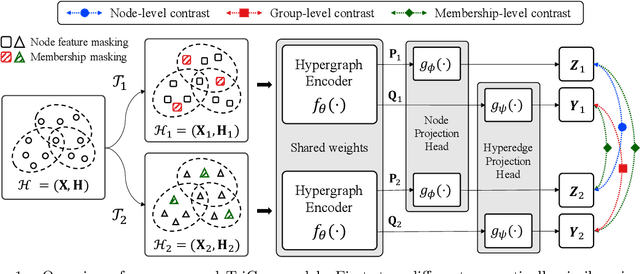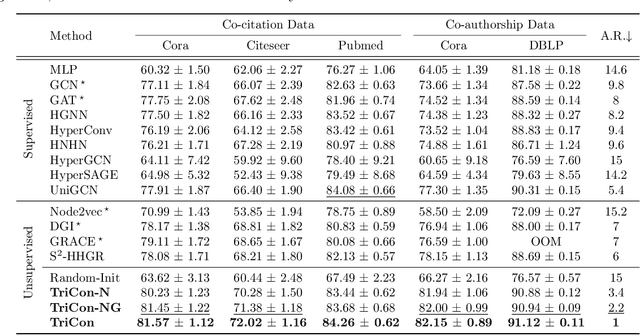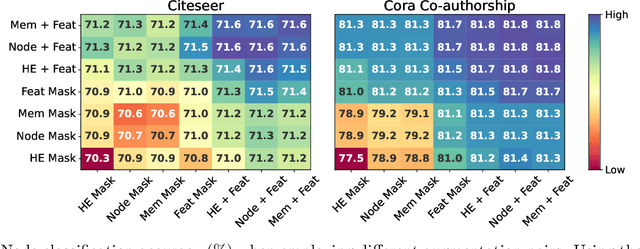I'm Me, We're Us, and I'm Us: Tri-directional Contrastive Learning on Hypergraphs
Paper and Code
Jun 09, 2022



Although machine learning on hypergraphs has attracted considerable attention, most of the works have focused on (semi-)supervised learning, which may cause heavy labeling costs and poor generalization. Recently, contrastive learning has emerged as a successful unsupervised representation learning method. Despite the prosperous development of contrastive learning in other domains, contrastive learning on hypergraphs remains little explored. In this paper, we propose TriCon (Tri-directional Contrastive learning), a general framework for contrastive learning on hypergraphs. Its main idea is tri-directional contrast, and specifically, it aims to maximize in two augmented views the agreement (a) between the same node, (b) between the same group of nodes, and (c) between each group and its members. Together with simple but surprisingly effective data augmentation and negative sampling schemes, these three forms of contrast enable TriCon to capture both microscopic and mesoscopic structural information in node embeddings. Our extensive experiments using 13 baseline approaches, five datasets, and two tasks demonstrate the effectiveness of TriCon, and most noticeably, TriCon consistently outperforms not just unsupervised competitors but also (semi-)supervised competitors mostly by significant margins for node classification.
 Add to Chrome
Add to Chrome Add to Firefox
Add to Firefox Add to Edge
Add to Edge